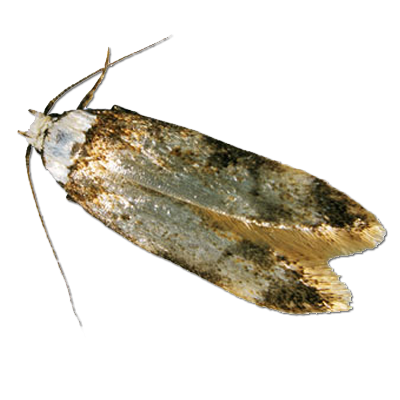Clothes Moth Control
There are two main types of Clothes Moth - the Common Clothes Moth and the Case-bearing Clothes Moth. Clothes moths are not a health risk but their larvae can cause costly damage to clothes, fabrics and any organic materials.
How to identify a Clothes Moth problem
Warm dark wardrobes, drawers and insulated lofts make the ideal environment for an array of pests with a penchant for textiles. The offspring (larvae) of clothes moths, carpet beetles and fur beetles love to chew through carefully stored clothing, rugs, and curtains - anything made of organic fibres, including the animal skin and feathers commonly found in/on musical instruments. They also love birds' nests in loft spaces where the larvae will feed on bird feathers - from here they will quietly spread unnoticed to other areas of the house.
By the time you have noticed the moths and their larvae will have already caused a great deal of damage. Natural fibre clothing, such as your favourite cashmere jumper, are a favourite foodstuff for the clothes moth.
Adult textile moths can easily be identified as they are often seen running rather than flying.
How to get rid of Clothes Moths
With clothes moths, prevention is definitely better than cure as, by the time you realise you have a problem, they will most probably have ruined some of your favourite woollens.
The first step is to make sure you only put away freshly washed clothes when storing winter woolies for the summer - moths like dirty clothes.
Secondly, it is good advice to use clothing storage bags. Clothing is placed into the bag and then the air is sucked out using a standard vacuum cleaner hose. These give a good level of protection against moth infestations.
Finally, to help lessen the chances of a moth infestation, regularly use a vacuum cleaner on areas such as the underside of a rug or sofa. Moths thrive in dark quiet areas and this will help remove eggs and reduce the risk of larvae growing.
Mothballs and lavender have limited impact, but our control experts can apply more effective treatments to with pest moths. Some infestations may require specialised treatments, so the sooner you call for help the better. Cleankill can apply insecticidal treatments to drawers, wardrobes, roof spaces and other affected areas, if all preventive measures have failed.
Read our case study about how our moth control services treated a moth infestation with a giant freezer!
